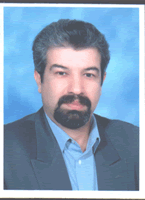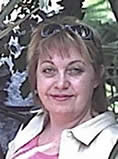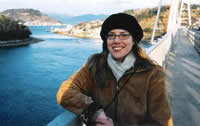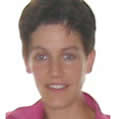|
TESOL
EVONLINE 2005 - Jan 17-Feb 26
|
|
|
Making
the Transition from ESL to ESP
|
Meet the Participants in this ESL2ESP EVOline 2005 Session
|
Carol Pineiro
|
My name is Carol Pineiro, and I teach at Boston University.
I taught Business English for 10 years, Science and Tecnology
for 5 years (to ITAs), and now Medical English in on-ground courses
with an online one starting this summer. I'm interested in the
phenomenon of foreign nurses coming to the US and trying to improve
their English skills in order to work here. What kind of courses
are being designed for them? I'm also wondering if anyone in this
group has taught an online course in Medical English so I know
what to expect this summer. Nice to meet you all and be part of
the group. |
|
Irina |
I am Irina from Ukraine. I work as a senior lecturer
at the FLD of the National Mining University in Dnipropetrovsk.
I am teaching ESP or better to say EAP for the students of different
specialism areas (Engineering, Computer Sciences and IT.Some years
ago these students were taught simply EFL or General English with
the elements of Business Basics. I have the previous experience
working as an engineer responsible for information search and
their translation for the needs of the Department and as a Translator
at the Patent Office, that is why I think I am aware of the needs
of future engineers in Ukraine, where and what for they will use
English. The only question is HOW to teach students? Personally
I am using task-based learning centred approach in teaching/learning
promoting learners autonomy, but many teachers think that topic/
notion- oriented approach is the only appropriate one. Any comments? |
|
Kris Hiller |
My name is Kris Hiller, and I work for the University of
California, Riverside. I taught ESL at our extension center
in Riverside for awhile, but I moved into administration about 2
years ago. Before I started with UCR, I taught at a few |
|
Aiden Yeh |
Aiden Yeh is a Ph.D Candidate at the University of Birmingham. She is a Lecturer at Wen Zao Ursuline College of Languages, Taiwan (http://www.wtuc.edu.tw/version/english/new2/).
|

Mohammad Alavi |
I received my Ph.D. From Lancaster University in UK. My main |
|
Karen García |
I am Karen García,
living in Western Massachusetts and originally from Puerto Rico. My practice as a Social Scientist has lead me to an on-line environment full of language teachers, so I am learning about that. That is to say, I need definitions about terms (such as ESL and ESP, especially since for me the latter means Extra Sensory Perception!). Since I am always inquiring about words and their meaning, I think that what I've been doing with teaching teachers about the use of the internet is related to this workshop about transitioning into language for special purposes. Let me run it by you. I would like to develop the concept offered at http://predu.tripod.com during the next 6 weeks and hopefully also activate the discussion started at the OpenSourcED Moodle http://moodle.ntjcpa.edu.tw/ under the course: Using the Internet for Educational Purposes. Please feel free to enter and help out with ideas about how to construct a module on "All you need to know of English language to be able to use the Internet for teaching". That should be considered an English for Special Purposes task… isn't it? |
|
Evan Frendo
|
Evan Frendo, (Singapore) I've been involved in business English / ESP for just over ten |
|
Nergiz |





